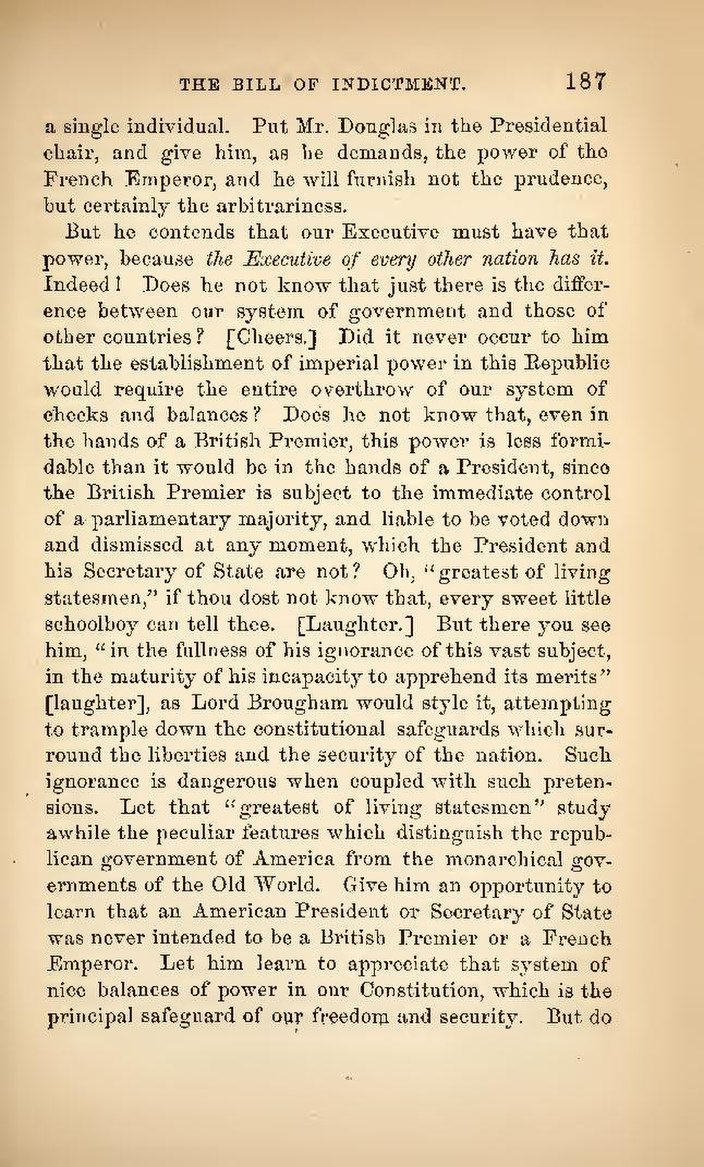a single individual. Put Mr. Douglas in the Presidential chair, and give him, as he demands, the power of the French Emperor, and he will furnish not the prudence, but certainly the arbitrariness.
But he contends that our Executive must have that power, because the Executive of every other nation has it. Indeed! Does he not know that just there is the difference between our system of government and those of other countries? [Cheers.] Did it never occur to him that the establishment of imperial power in this Republic would require the entire overthrow of our system of checks and balances? Does he not know that, even in the hands of a British Premier, this power is less formidable than it would be in the hands of a President, since the British Premier is subject to the immediate control of a parliamentary majority, and liable to be voted down and dismissed at any moment, which the President and his Secretary of State are not? Oh, “greatest of living statesmen,” if thou dost not know that, every sweet little schoolboy can tell thee. [Laughter.] But there you see him, “in the fullness of his ignorance of this vast subject, in the maturity of his incapacity to apprehend its merits” [laughter], as Lord Brougham would style it, attempting to trample down the constitutional safeguards which surround the liberties and the security of the nation. Such ignorance is dangerous when coupled with such pretensions. Let that “greatest of living statesmen” study awhile the peculiar features which distinguish the republican government of America from the monarchical governments of the Old World. Give him an opportunity to learn that an American President or Secretary of State was never intended to be a British Premier or a French Emperor. Let him learn to appreciate that system of nice balances of power in our Constitution, which is the principal safeguard of our freedom and security. But do
